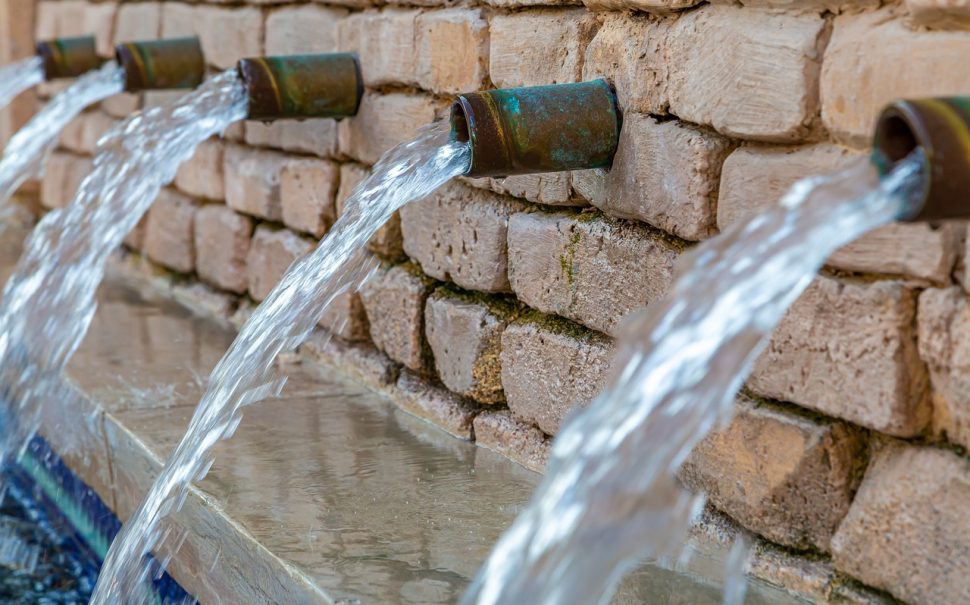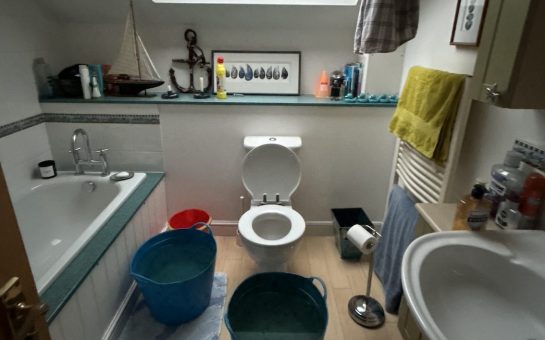Thames Water has declined to participate in a £180m anti-pollution pledge, prompting calls for the company to be placed under special administration amid fears of a taxpayer-funded bailout.
In recent weeks, a £180m joint investment has been pledged by six UK water companies aimed at preventing sewage spills, but Thames Water, one of the country’s worst offenders, is not on the list.
The fund announced by the Department for Environment, Food & Rural Affairs is aiming to prevent more than 8000 sewage spills polluting English waterways over the next 12 months.
Environment Secretary Steve Barclay said in a statement that the amount of sewage being spilled into our rivers is “completely unacceptable” and the money raised would mean more cutting-edge technology, including artificial intelligence, and more specialist staff to detect and reduce spills.
Anglian Water will invest the most at £50m with Severn Trent, Southern, South West, United Utilities and Wessex committing a combined £130m.
Yet Thames Water, the UK’s biggest water supplier with more than 15 million customers, has declined to commit money to the scheme in spite of having one of the worst pollution records in Britain.
In 2022, the water company had 17 serious pollution incidents – the highest number in the sector.
A Freedom of Information request obtained by the Liberal Democrats last year revealed they have dumped an alarming 72 billion litres of sewage into the River Thames since 2020.
Mogden near Twickenham is the worst affected site where 17.1 billion litres of sewage were discharged into the river.
Research from the University of Oxford highlights that pollution from sewage stands as the primary threat to river biodiversity and, as well as the ecological consequences, it poses serious threats for human wellbeing.
In response to these developments, water regulator, Ofwat, emphasised the urgent need for water companies to reduce sewage discharge levels significantly. An Ofwat spokesperson said: “Water company performance on the environment is simply not good enough.
“Companies must take urgent action to cut sewage discharges and we have brought in new measures to penalise companies that fail to fully monitor their storm overflows.
“We also have new powers to take action against companies that pay out unearned dividends and can now stop customers paying for inappropriate bonuses.
“Companies are not spending the money we have already approved for investment and since 2020, a quarter of the funding hasn’t been used, that is worth almost £2bn. They must start now.”
This sentiment aligns with growing demands for stricter regulations and enhanced environmental stewardship within the water industry.
Sarah Olney, Liberal Democrat Treasury Spokesperson and Richmond Park MP, has advocated for increased environmental regulation regarding water companies’ pollution.
She recently raised the issue again by posting footage taken by residents near the Teddington Lock on the border of Kingston and Richmond showing what appeared to be sewage floating in the water, a claim that the Environment Agency refutes, stating it was a natural occurrence.
On X, she said: “This is a complete environmental hazard.
“How much longer are you going to let this disgusting practise continue @thameswater and @stevebarclay?”
Thames Water’s reluctance to invest in critical sewage management initiatives comes alongside concern over the company’s mounting debts which currently sits at £18.3bn.
It has an £190m loan bill due in April with reports from Sky News stating that some of its major creditors have engaged EY to advise them over concerns about Thames Water’s ability to pay them back.
In Parliament, Olney demanded the government to publish details of “Project Timber”, the alleged secret plan to bail out Thames Water in the event of its collapse.
She called for Thames Water to be placed into special administration and reformed into a Public Benefit Company to protect taxpayers from bearing the financial burden and guarantee the continuation of service for customers.
She said: “It is extraordinary that the country’s largest water company could be allowed by this Government to give its executives millions in bonuses while failing to fulfil its basic functions, but that is the situation that has been allowed to occur for far too long.
“After years of letting Thames Water pollute our rivers, fail to perform basic functions and charge customers higher and higher bills, enough is enough.
“Rather than continue to let the asset strippers run Thames Water into the ground, the Liberal Democrats are clear: we cannot let this situation continue.
“Thames Water is no longer a functioning company, and the government have a choice: either bail them out with taxpayer money, or listen to our calls to put it into special administration to then be reformed into a company for the public benefit.”
Under this proposal, the water provider would not be renationalised but forced to prioritise public policy benefits such as tackling sewage dumping and leaks as opposed to focusing on delivering returns for shareholders.
They would also have to include representatives of local environment groups on their board.
Campaigners go a step further, arguing that nationalising and placing water utilities under public ownership would address mismanagement and give priority to environmental concerns.
Matthew Topham, Lead Campaigner at public ownership campaign group We Own It, said: “The public would be rightly outraged if Thames Water got away with financing their huge debt pile out of our bills, only to be bailed out at our expense.
“We need assurances now from the government that if Thames Water collapses the public won’t be paying to prop it up.
“It’s no wonder that nearly 20,000 people have already signed our petition to take Thames Water into permanent public ownership with no bailout.
“Since privatisation, we’ve seen time and again that water companies prioritise profits over addressing the sewage crisis.
“Over £75bn has been paid out by water companies in shareholder dividends since privatisation; that’s money that could have been invested in our infrastructure to sort out sewage.
“After decades of borrowing to pay dividends, Thames Water is trying to wash its hands of its responsibilities to bill payers and the environment.
“If private water companies can’t fulfil their legal obligations to meet environmental standards, they are not fit for purpose.
“Thames Water’s latest refusal to contribute to anti-pollution initiatives is further evidence that regulation has failed.
“It doesn’t have to be this way. Water is a natural monopoly: it belongs in public hands.”
As Thames Water navigates financial uncertainties and environmental challenges, the conversations surrounding its responsibilities towards pollution prevention and potential systemic reforms will only intensify.
Thames Water were contacted for comment, with no reply.
Featured image: Image by Tom from Pixabay





